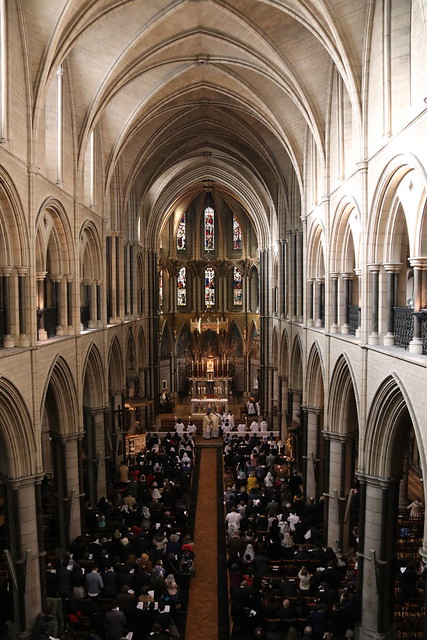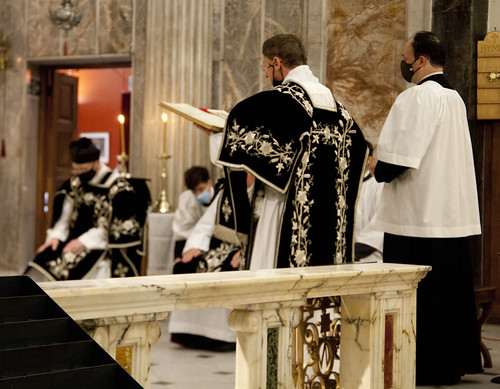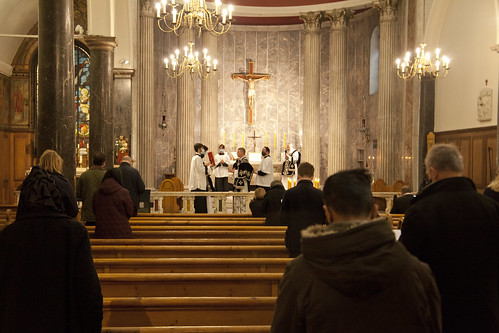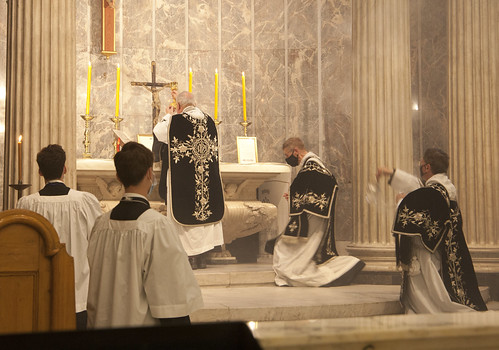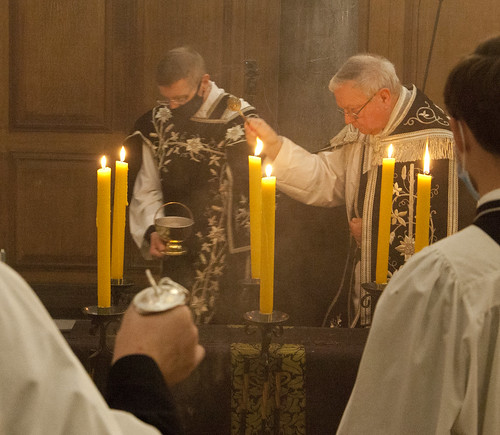Chairman's Blog
More Socratic Seminars: read Plato's dialogues with me
My seminars on the early dialogues continue, and the current series concludes next week.
Plato's dialogues are literary and philosophical masterpieces, exposing the limitations of common sense and setting out the philosophical attitudes and methods which have set the tone of the discipline from Plato's day to the present. I started these seminars during the lockdown, but the possibility of teaching anyone interested, and without regard to distance, suggests that they may have longer to run.
The premise of the series is that pretty well anyone with the necessary time (not very much is needed) and interest can engage profitably with the short early dialogues. Doing so is sufficient preparation, for those who want to, to continue with some of the slightly more complex and longer ones.
Just now I have been leading two seminars: one on four short early dialogues, and one on two longer ones: Protagoras and Gorgias.
With a view to starting in the week of 14th June, I am offering
Series 1: for those new to this.
1: Euthyphro (on piety), Ion (on poetic inspiration), Lysis (on friendship), and Laches (on courage).
Series 3: for returning students.
3: Hippias Major (on beauty), Meno (on virtue), Euthydemus (on the eristic method), and Clitophon, Theages, & Alcibiades (different takes on the Socratic method, attributed to Plato).
Plus Series 5: for returning students who have done both beginners' and intermediate seminars.
5: Phaedo (on the afterlife); Phaedrus (on the nature of the soul): each divided into two parts.
More Online Latin (and Greek) Courses
-----------
Matthew Spencer
Matthew offers a range of courses, including introductory and intermediate Latin, classical and koine (New Testament) Greek, entirely online.
The Introductory New Testament Greek course is the ideal preparation for the Latin Mass Society’s residential course above, at which Mr Spencer will be the Greek tutor.
Seminarians and clergy can claim half the cost of Latin courses with Mr Spencer back from the Latin Mass Society.
For his current offerings, see this pdf.
Sr Tamsin Geach, ‘Latin in 50 Lessons’
This is also highly recommended, though not associated with the Latin Mass Society. See her website here
Traditional Confirmations in London, 10th July: book now
Bishop John Sherrington (Auxiliary Bishop of Westminster) will confer the Sacrament of Confirmation in the Traditional Rite on Saturday, 10 July 2021 at St James's Spanish Place, London W1U 3QY, at 11.30am. This will be followed by Pontifical Benediction.
To register your child or yourself for Confirmation, please complete the registration form below.
The deadline for registering and submitting the required documentation is FRIDAY 18 JUNE 2021.
More details, and online booking form, here.
St Benedict's Academy, Warrington
In association with the apostolate of the Institute of Christ the King Sovereign Priest in Preston, Lancashire, St Benedict's Academy is calling for expressions of interest in enrolling children in their programme from this September. They have produced this video; contact details below.
Saint Benedict’s Catholic Academy, in the city of Preston (Priest Town) provides a classically taught curriculum for your children in a Catholic environment.
For more information please 
Something about the New Feminism Blogger doesn't want you to see
This post, from February, was deleted last night by Blogger. The explanation was that it violated their terms of service in relation to 'malware and viruses'. Hmm.
-----
Most people are blissfully unaware of the vast extent of intellectual fakery which inhabits universities around the world. The fact that a great deal of it is paid for by taxpayers is bad enough, but sometimes it rises to levels which raise a different kind of question. This is the case with this articleby Alison Phipps, Professor of Gender Studies at Sussex University. She shares this institution with the ‘Gender Critical’ feminist Kathleen Stock whom I wrote about here, but describesher colleague’s views, such as that women should not have share refuges with biological males, as beneath debate (“‘Reasonable debate’ cannot counter unreasonable ideas.”). In the article, Phipps writes that women expressing trauma about sexual violation, a phenomenon she describes as “white tears”, is a tool of oppression.
It is difficult to find words to do justice to the outrageous nature of this claim, and it calamitous consequences if taken seriously. But these are not the ravings of a lone madwoman. Phipps is a professor at a serious university, these reflections of hers are published in a mainstream journal, and she has also published a book on the same theme, with Manchester University Press. More significantly, she is one of many radical feminists of the new school. Put “white tears” (with quotation marks) into Twitter’s search bar, and say hello to a truly grim new world.
Phipps’ central idea is summed up in the title of her book: “Me Not You”. In the cover design these words are superimposed on the words “Me Too”. The idea is that when a woman complains about being raped, as happened with the “MeToo” movement, she is drawing attention to her own suffering, and therefore drawing attention away from the suffering of others. If she is relatively privileged, this is an act of oppression against those less privileged than her, who are thereby silenced.
It is a very strange argument. It is certainly true that when a more “privileged” person is the victim of abuse or injustice, he or she has an opportunity to fight back which other victims may lack. All kinds of resources, contacts, legal assistance and so on may be available to such a victim. Again, an abuser so bold as to tackle a Hollywood star, for example, will almost certainly have been abusing less well-connected victims. Is this a reason for the star to ignore the abuse and remain silent? Of course not. When the most well-resourced victims, the ones with least to fear, finally turned on Harvey Weinstein, they did what many other victims could not so easily do: they brought his abuse to an end.
As a matter of fact, even very humble victims of abuse can sometimes be successful. The gilded career of Dominique Strauss-Kahn, then head of the International Monetary Fund, was shipwrecked by a New York hotel maid. (The criminal prosecution was dropped but he settled a civil suit out of court.) As so often happens, when the appearance of vulnerability is diminished, other victims come forward. In one sense it doesn’t matter who is the first victim to take the plunge with a formal accusation, but I bet the poorer, more isolated, and less well-advised ones fervently hope that the way will be cleared by someone with the best possible chance of success.
Indeed, I would say that to make an accusation can in certain circumstances be a public duty, and this is a duty particularly incumbent on the most privileged. If an abuser can silence even them, then he is truly invulnerable. Many victims of abuse are plagued with the worry that they won’t be believed, but someone whose social status gives them credibility can make the testimony of other victims’ more credible.
In Phipp’s world view, one might imagine that there is a limited amount of outrage to go round, but the “MeToo” movement showed, on the contrary, how outrage can magnify itself: the more outrage is generated, the more, in some cases, there is left over for others. It is certainly not a zero-sum game.
What are the practical implications of Phipps’ view? That those considering complaining about any kind of bad treatment should “check their privilege” and remain silent if they decide that they lack status in the inverted hierarchy of victimhood, which is conceived of at least in part in racial terms. This is not an inversion of the view she is attacking: she is actually doing the same thing as she accuses others of doing: namely, of determining, by reference to an arbitrary and racially-aligned set of criteria, who is to be allowed justice, and who should continue to suffer exploitation and abuse in silence.
In her world, it is to be women, above all, whose abuse will be tolerated, and whose suffering ignored. This is the woke Feminism of the 21stcentury, whose advice to women seems to be “suck it up, buttercup”.
Spring Mass of Ages is here!
The new issue should be on members' doormats and in churches this weekend.
I have myself a feature article of the late Fr Reggie Foster and his teaching system and book, Ossa Latinitatis Sola: verdict, not all that great.
In this issue: • John Henry Newman Appeal: Help save the Cardinal Saint’s unique collection of books as well as the room where he worked, studied, and latterly said Mass • Sisters of the Cross: Alan Frost looks at the remarkable life of the Venerable Elizabeth Prout CP • Fr Reggie Foster and his book: Joseph Shaw bids farewell to the King of Catholic Latin • Our Lady of Glastonbury: Dom Bede Rowe on a living Benedictine tradition in the West Country • The scholar priest: Charles A. Coulombe remembers linguist and adventurer Adrian Fortescue • Communist infiltration? Kevin J. Symonds looks at the curious history of Dr Bella Dodd and the Catholic Church.
Requiem for HM Prince Philip, Duke of Edinburgh
Sponsorship for Embroidery Course at the Royal School of Needlework
In 2019 the Guild of St Clare made the first award under its Sponsorship Scheme to help a student through the Certificate Course at the Royal School of Needlework (RSN), and in 2020 we made the second. Our two sponsored students are, despite the epidemic, progressing through the course, and we are now inviting new candidates to apply for the scheme.
The deadline for applications this year is 22nd June.
The RSN Certificate Course takes between one and four years, depending on how intensively students wish to do it. Its great flexibility makes it ideal for those who can only spare limited time, or whose availability fluctuates over the year. The Certificate gives its graduates a thorough grounding in a range of traditional hand-embroidery skills, skills for which the RSN is renowned, and which its experts apply to historic restoration projects and important commissions.
Walking Pilgrimage in Northern Spain, 24-26th July
Although the Chartes Pilgrimage will not be taking place as normal in 2021, a victim in part of its taking place relatively early in the year as we emerge from epidemic restrictions, I'm delighted to bring to a wider public information about a traditional walking pilgrimage in northern Spain, 24th to 26th July, 2021, which everyone should be able to join.
I should also mention that the the Latin Mass Society's annual walking pilgrimage to Walsingham is also open for booking. The dates for this are 26th to 30th August. See here for information and registration.
Nothing will make you feel like a human being and a Catholic again quite like participation in a three-day walking pilgrimage!
Here is more information about the Spanish pilgrimage, which has the support of Una Voce Seville.
Our Lady of Christendom – Spain (NSC-E) is an annual pilgrimage to the shrine of Our Lady of Covadonga (Asturias) organized by a group of faithful lay Catholics devoted to the celebration of the Holy Mass according to the Extraordinary Form of the Roman Rite. It takes place around the feast of St. James the Apostle (July 25th), patron saint of Spain.
The aim of the pilgrimage is the sanctification of the soul through the graces asked to Our Lord, through the intercession of the Blessed Virgin Mary, by the offering of prayers, sacrifices and mortifications during three days. During these days of pilgrimage we especially commend our Homeland and the Holy Father.
NSC-E seeks to contribute to the restoration of the spirit of Christendom – according to our possibilities and always with divine help – which has given the Church and the world so many saints, heroes and defenders of the Faith. We are talking about Christian social order, which is only possible if we commit ourselves to the restoration of everything in Christ, beginning with those of us who are on pilgrimage, our families, and the various spheres of society in which we find ourselves.
Cupich vs. Aquila
My latest on Life Site News.
Following an article in Americaby Archbishop Aquila of Denver, in which he reiterated the Church’s teaching on the importance of approaching Holy Communion with the right dispositions, a bishop—it seems it was Cardinal Cupich—wrote a curious admonition to Aquila, which Aquila quoted in responding to it in a second article:
“I respectfully note that to claim that we can do anything to diminish the Eucharist, or its effects, is contrary to the church’s longstanding teaching. Catholic sacramental theology is based on the premise that the sacraments are the work of Christ, which is the meaning of the Church’s affirmation at Trent (DS 1608) that the sacraments act ex opere operato, or, as St. Thomas wrote in the Summa, III, 68,8: ‘The sacrament is not wrought by the righteousness of either the celebrant or the recipient, but by the power of God.’ Owing to the nature of God, Christ and his works can never be diminished by any act on our part.”
Here, Cupich points out that an unworthy recipient of Holy Communion genuinely receives the Body of Christ, and erroneously infers that he also receives the grace which should accompany that. But God does not force His grace on us. As the ancient chant composed by St Thomas Aquinas for the feast of Corpus Christi expressed it: “Sumunt boni, sumunt mali, sorte tamen inaequáli, vitae vel intéritus”: “The good take, the bad take, yet with unequal destiny, of life, or of ruin”.



